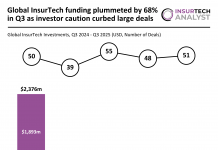Personal finance platform Credit Karma has moved into the insurance space through the launch of its new service.
Members in California and Texas will now be able to compare how much they are paying for auto insurance with what other members like them are spending on the same coverage. The solution will launch in other states in coming months.
Through this new service, Credit Karma hopes to support the high number of Americans which are paying extra for cover, which the company estimates to be around $21bn.
The company will educate its users on how factors such as moving violations and credit scores can impact insurance rates.
Credit Karma’s current auto offering uses driver and vehicle information from the DMV and other sources to help members save money on auto loans, track estimated value of their car and check recall details.
US-based Credit Karma is a personal finance platform that offers consumers a suite of tools to monitor and improve credit health, prepare and file income taxes, monitor their identities and manage vehicle information and financing options. Through data modelling the platform can analyse and identify the best financial products for users.
Credit Karma founder and CEO Kenneth Lin said, “We built the auto experience to help put money back into the pockets of our members. With our refinance experience, we’ve helped our members save nearly $150 million on their auto loans in under a year.
“We plan to do the same for insurance. We estimate that Americans are overspending on auto insurance by nearly $21 billion a year and believe that bringing simplicity and transparency to our members will help them save.â€
Earlier in the year, Credit Karma received a $500m strategic secondaries investment from Silver Lake, in exchange for a minority stake in the company.
Copyright © 2018 FinTech Global










